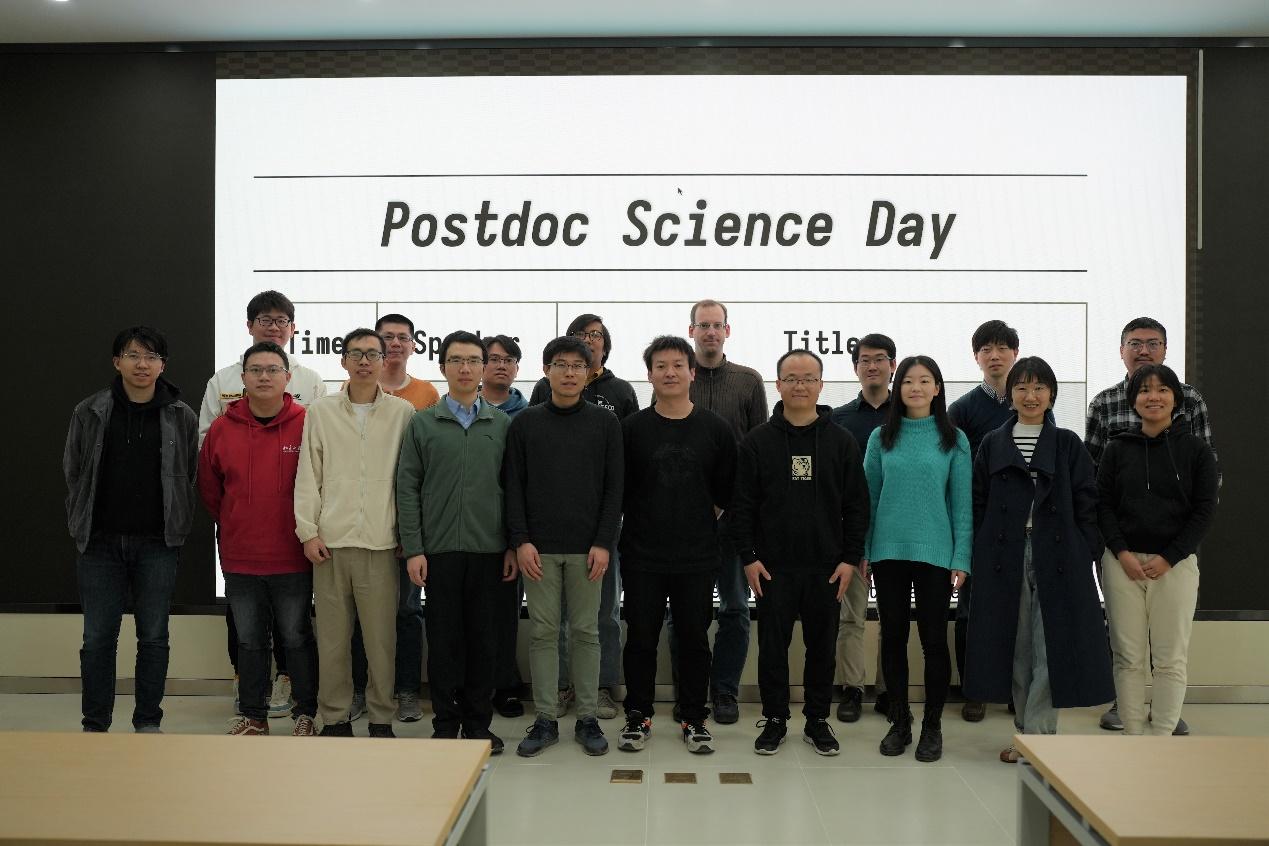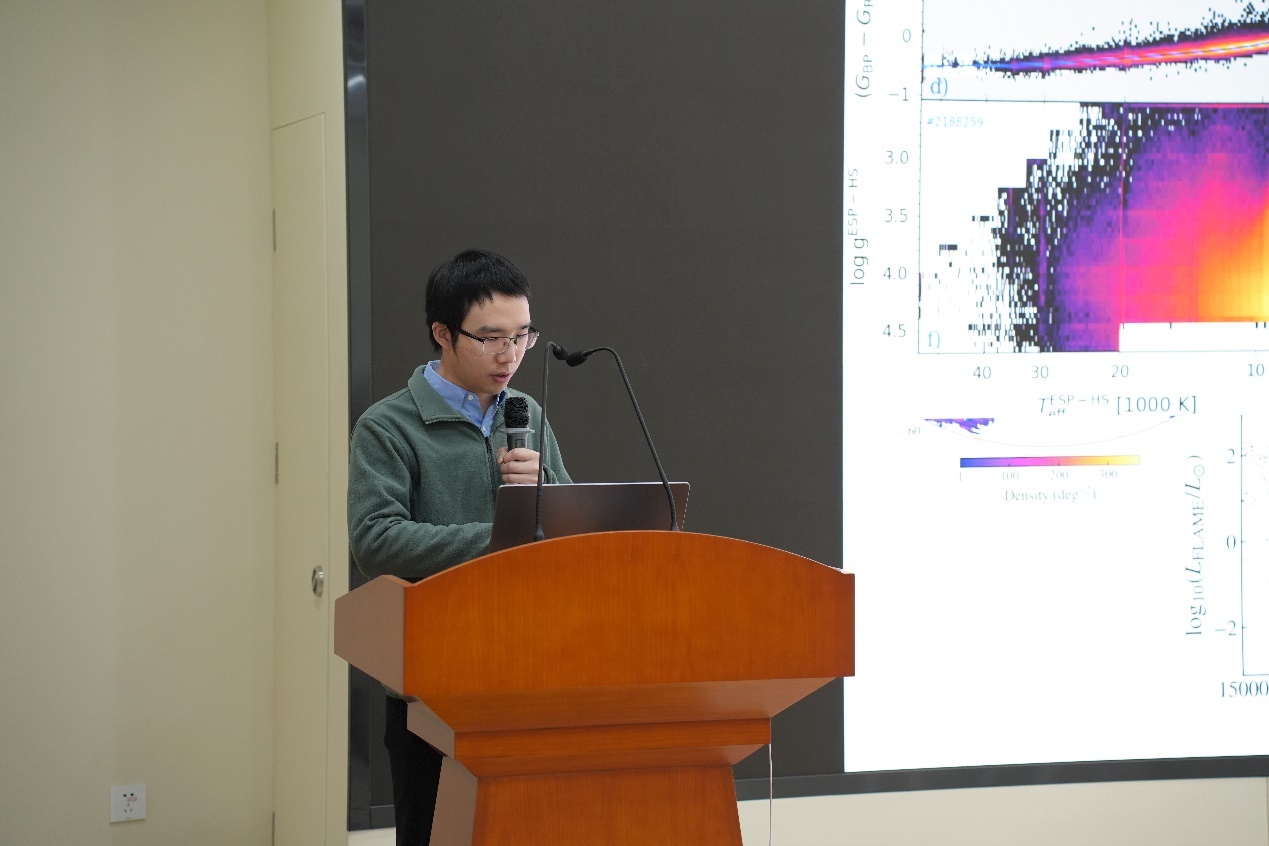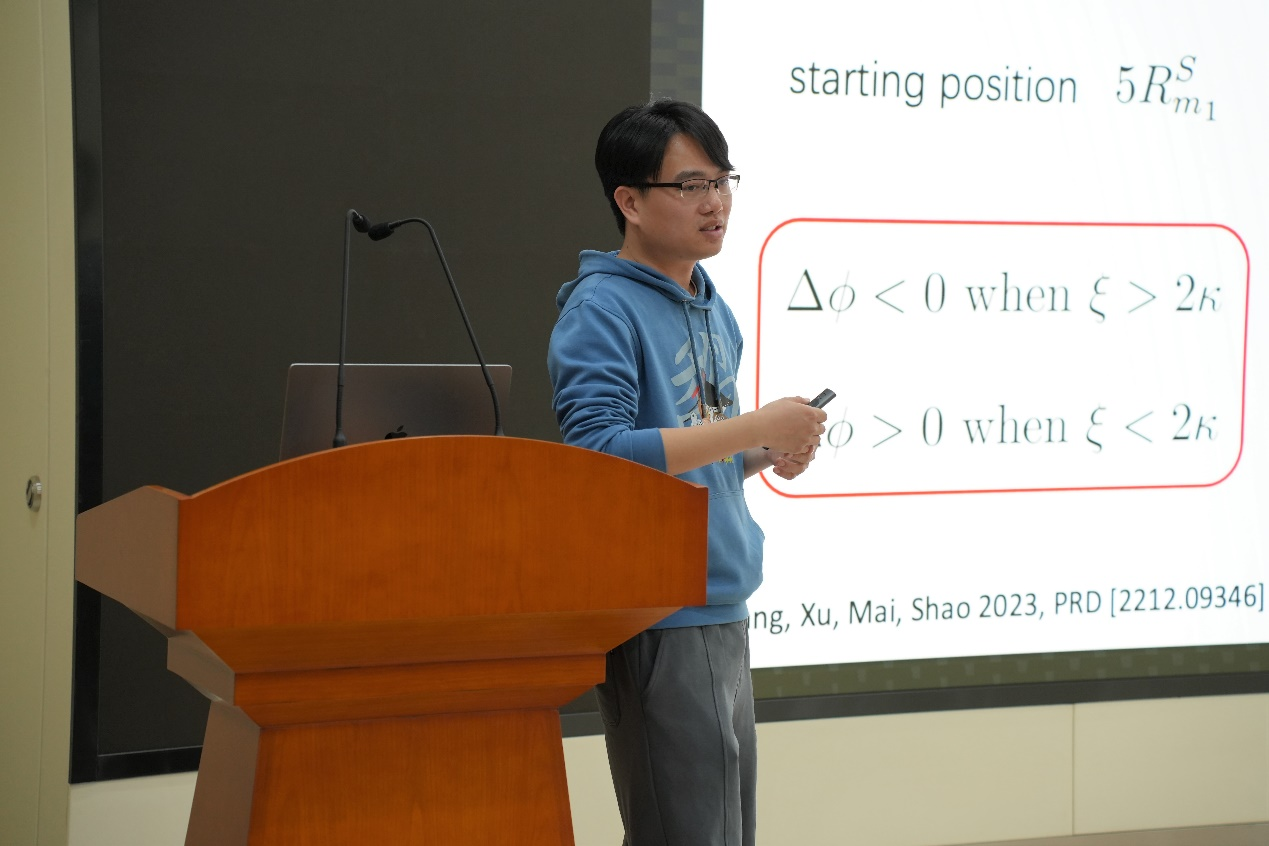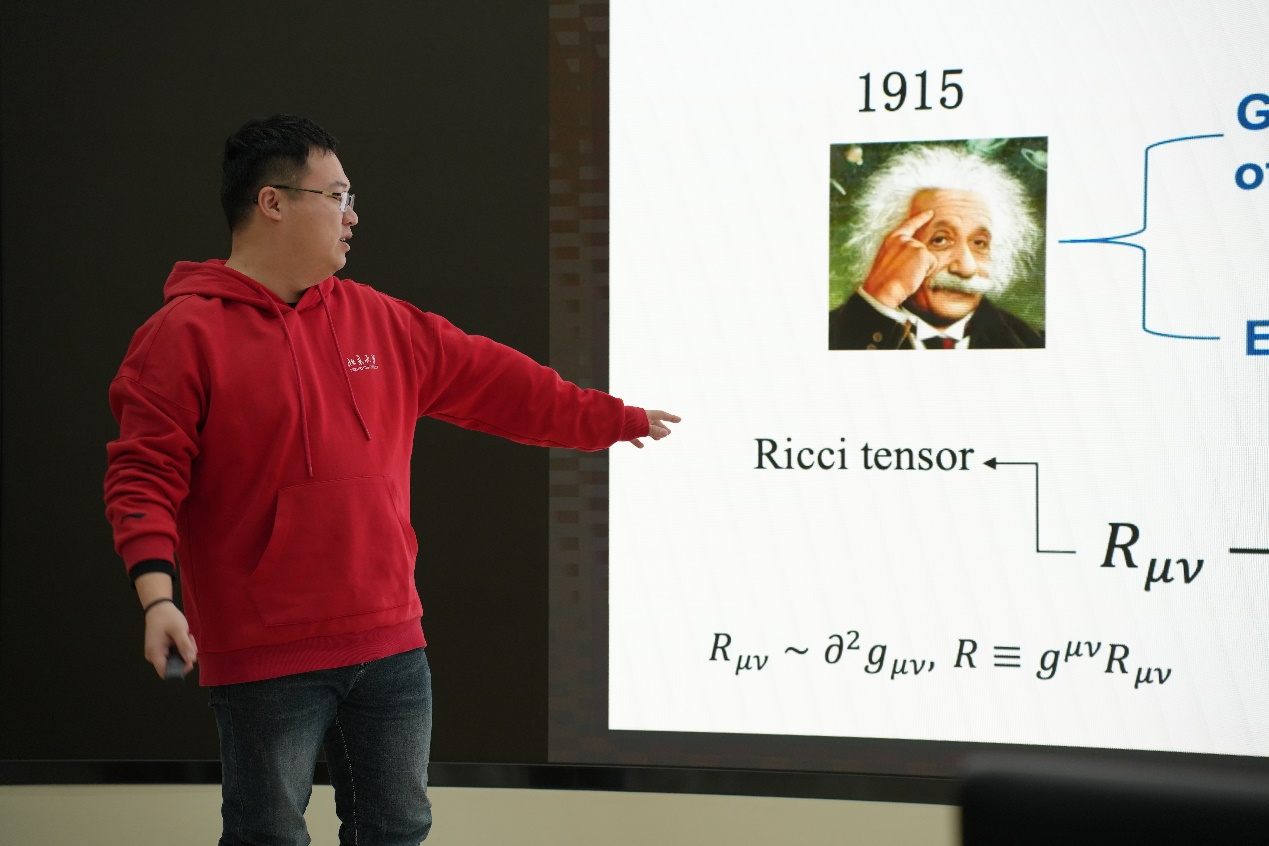The postdoc science day was held by the Kavli Institute of Astronomy and Astrophysics (KIAA) and the Department of Astronomy (DoA) at Peking University on Wednesday, Mar. 22. This annual event provides an opportunity for postdocs to communicate their research interests, recent advances, and future plans, while also promoting discussions and potential collaborations among postdocs in different

Group Photo
Fourteen postdocs presented excellent talks covering a wide range of research fields, including gravitational waves, planet formation, star formation, and extragalactic astronomy from both observational and theoretical perspectives. These talks are also closely related to the current and upcoming large astronomical facilities, including FAST, CSST, JWST, etc. More than 30 students, postdocs, and faculties attended the event, asked questions, and had lively discussions.
Many of the speakers presented exciting results using powerful observational facilities in China. Dr. Yuming Fu presented their newest quasar candidate catalog (~1 million new quasar candidates) extracted from Gaia DR3 with the state-of-the-art machine learning technique, also leveraging the star catalog produced by the LAMOST survey. They also demonstrate that their catalog is much purer than the original Gaia DR3 QSO candidate sample and these candidates can be further confirmed by the spectroscopic survey of LAMOST and CSST. Dr. Chao Ma presented their newly developed pipeline to extract galaxies and measure their properties in crowded fields. This technique can be applied to the CSST optical image survey. Dr. Siyuan Chen and Dr. Lin Wang presented their ongoing work on the pulsar timing array and radio observation and globular clusters, leveraging the high sensitivity of FAST.

Dr. Yuming Fu

Dr. Dicong Liang

Dr. Zhanfeng Mai